|
Books Should Be Free Loyal Books Free Public Domain Audiobooks & eBook Downloads |
|
|
Books Should Be Free Loyal Books Free Public Domain Audiobooks & eBook Downloads |
|
Comedies |
|---|
|
Book type:
Sort by:
View by:
|
By: George Bernard Shaw (1856-1950) | |
|---|---|
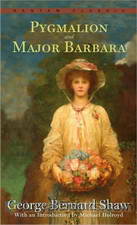 Pygmalion
Pygmalion
If you've watched and loved the delightful musical My Fair Lady, then you'd love to read the wonderful play on which it is based. Pygmalion by George Bernard Shaw is equally engrossing and as full of charm, wit and underlying pathos. First performed on stage in 1912, Pygmalion takes its title from the Greek myth of Pygmalion and Galatea. In the ancient story, a brilliant sculptor, Pygmalion falls in love with one of his own creations, a ravishingly beautiful sculpture whom he names Galatea. He propitiates Aphrodite, who grants his wish that his statue would come to life and that he could marry her... | |
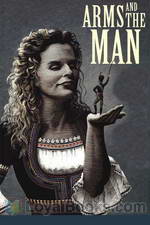 Arms and the Man
Arms and the Man
Arms and the Man is a comedy by George Bernard Shaw that takes place in 1885, during the Serbo-Bulgarian War. Raina Petkoff is engaged to the gallant Sergius Saranoff, hero of the recent Bulgarian victory over the Serbs. But she is distracted by the abrupt arrival of Captain Bluntschli, a Swiss mercenary who fought for the Serbian army. He takes refuge in her bedroom after the battle and although he is initially threatening, reveals that he carries chocolates instead of bullets. Will Raina marry the posturing Sergius or the chocolate cream soldier? Extra intrigue is provided by saucy servant girl Louka, her dour fiance Nicola, and Raina's hand-wringing parents. | |
 The Doctor's Dilemma
The Doctor's Dilemma
The Doctor's Dilemma is about Dr. Colenso Ridgeon, who has recently been knighted because of a miraculous new treatment he developed for tuberculosis. As his friends arrive to congratulate him on his success, he is visited by two figures who present him with a difficult decision. He has room for one more patient in his clinic; should he give it to Louis Dubedat, a brilliant but absolutely immoral artist, or Dr. Blenkinsop, a poor and rather ordinary physician who is a truly good person? Dr. Ridgeon's dilemma is heightened when he falls for Jennifer Dubedat, the artist's wife, who is innocent of her husband's profligacy. | |
 Candida
Candida
Candida, a comedy by playwright George Bernard Shaw, was first published in 1898, as part of his Plays Pleasant. The central characters are clergyman James Morell, his wife Candida and a youthful poet, Eugene Marchbanks, who tries to win Candida's affections. The play questions Victorian notions of love and marriage, asking what a woman really desires from her husband. The cleric is a Fabian Socialist, allowing Shaw—himself a Fabian—to weave political issues, current at the time, into the story. | |
 Major Barbara
Major Barbara
George Bernard Shaw's Major Barbara focuses on the family of aristocratic Lady Britomart Undershaft and her estranged husband Andrew, a millionaire armaments manufacturer. Their daughters Sarah and Barbara are both engaged to be married, and Lady Britomart decides to ask Andrew for monetary support. Barbara is a Major in the Salvation Army, and agrees to let her father visit the mission in the East End of London where she works. In exchange, she agrees to visit his munitions factory. The conflict between Barbara's philanthropic idealism and her father's hard-headed capitalism clash when he decides he wants to fund the Salvation Army... | |
 Heartbreak House
Heartbreak House
On the eve of World War I, Ellie Dunn, her father, and her fiancé are invited to one of Hesione Hushabye’s infamous dinner parties. Unfortunately, her fiancé is a scoundrel, her father’s a bumbling prig, and she’s actually in love with Hector, Hesione’s husband. This bold mix of farce and tragedy lampoons British society as it blithely sinks towards disaster. | |
By: George Colman the Younger (1762-1836) | |
|---|---|
 Heir At Law
Heir At Law
Daniel Dowlas a chandler from Gosport, transmogrified into a baron, naturally enough demands, in what consists the mighty difference between drinking his tea out of a cup, or a saucer. He has the good sense to feel his insufficiency; and, aspiring to shine as an orator, engages a professor to teach him culture. Opposed to my lord, stands my lady, Dowlas; wife, a full-blown hollyhock of the aristocracy of Mammon. She affects to amend her spouse's cakelology, admits that an oath may now and then be suffered to garnish polite discourse, but then, it must be pronounced with an air to one's equals, and with a kind of careless condescension to menials... | |
By: George Grossmith (1847-1912) | |
|---|---|
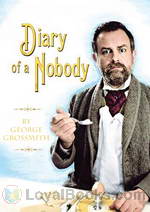 The Diary of a Nobody
The Diary of a Nobody
Grossmith’s comic novel unveils the daily chronicles of the pompous and clumsy middle-aged clerk Charles Pooter, who has just moved to the London suburb of Holloway with his wife Carrie. Nonetheless, the family’s fresh start is not quite what they had in mind. Set in the late Victorian era, the diary accurately documents the manners, customs, trends and experiences of the time. First appearing in Punch magazine through the years 1888-89, The Diary of a Nobody was first published in book form in 1892 and has entertained readers ever since... | |
By: George Kelly (1887-1974) | |
|---|---|
 Torch-Bearers
Torch-Bearers
"The cold, historical fact is that at about 9:15 o’clock on the evening of August 29th, 1922, five or six hundred average New Yorkers, two or three hundred friends of the management, and about fifty sophisticated first-nighters were in grave danger of rolling off their seats in hysteria because of The Torch-Bearers." How can you resist a play with a review like that? - Summary by ToddHW Cast list: Mr. Frederick Ritter: Adam Bielka Mr. Huxley Hossefrosse: larryhayes7 Mr. Spindler: KHand Mr. Ralph Twiller: Matthew Reece Teddy Spearing: DrewStarmer Mr... | |
By: George M. Cohan (1878-1942) | |
|---|---|
 Seven Keys to Baldpate (Play)
Seven Keys to Baldpate (Play)
Betting that he can write 10,000 words in 24 hours, a novelist locks himself into a snowbound summer resort on Baldpate Mountain with what he believes is the one and only key to Baldpate Inn. Yet his work is interrupted by a number of colorful characters who have arrived for various shady enterprises, each thinking they had the only key to the inn. Soon it is clear there must be seven keys to Baldpate. The mystery deepens as the novelist finds himself entangled in an improbable series of schemes and plans... | |
By: Gideon Wurdz (b. 1875) | |
|---|---|
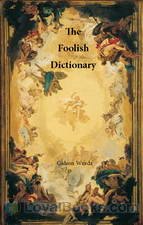 The Foolish Dictionary
The Foolish Dictionary
“The Foolish Dictionary” was written by “Gideon Wurdz” and was published in 1904. According to the beginning of the book, it is “An exhausting work of reference to un-certain English words, their origin, meaning, legitimate and illegitimate use…” This a a short but amusing dictionary which “redefines” words in some interesting ways. Funny and sometimes bizarre observations are sprinkled throughout. In keeping with the policy to read, rather than attempt to rewrite, books – even those with offensive content – nothing has been omitted... | |
By: Hannah Cowley (1743-1809) | |
|---|---|
 Belle's Stratagem
Belle's Stratagem
The Beaux Stratagem, already in the catalog , was written by George Farquhar in 1707. The Belle's Stratagem, "a Ladies' response" to the Beaux Stratagem play with strong female characters, was written by Hannah Cowley in 1780. - Summary by ToddHW Cast list: Doricourt: A D Latheron Hardy: Alan Mapstone Sir George Touchwood: ToddHW Flutter: Larry Wilson Saville: Mike Manolakes Villers: Marya James Courtall: Greg Giordano Silvertongue: Son of the Exiles Crowquill: qthemusic123 First Gentleman: Adrian Stephens Second Gentleman: Tomas Peter Mountebank: Sandra Schmit French Servant: Rémi Porter: Sonia Dick : David Purdy Letitia Hardy: Jenn Broda Mrs... | |
 Bold Stroke for a Husband
Bold Stroke for a Husband
"Plays, where the scene is placed in a foreign country, particularly when that country is Spain, have a license to present certain improbabilities to the audience, without incurring the danger of having them called such; and the authoress, by the skill with which she has used this dramatic permittance, ... has formed a most interesting plot, and embellished it with lively, humorous, and affecting incident.... Here is contained no oblique insinuation, detrimental to the cause of morality—but entertainment and instruction unite, to make a pleasant exhibition at a theatre, or give an hour's amusement in the closet... | |
 Which is the Man?
Which is the Man?
"Oh! Lord Sparkle! - Who can resist the gay, the elegant, the all-conquering Lord Sparkle? The most distinguished feather in the plume of fashion - without that barbarous strength of mind which gives importance to virtues or to vices. Fashionable, because he's well drest: - Brilliant, because he's of the first Clubs, and uses his borrowed wit like his borrowed gold, as tho' it was his own." A delightful comedy by a quite successful woman playwright. - Summary by ToddHW Cast list: Lord Sparkle:... | |
By: Harry Leon Wilson (1867-1939) | |
|---|---|
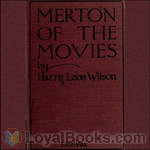 Merton of the Movies
Merton of the Movies
Merton of the Movies is a comedy that centers around Merton Gill, an aspiring dramatic artist from Simsbury, Illinois who makes his way to Hollywood to become a serious actor. How could Merton fail in attaining his dreams after finishing a correspondence course from the General Film Production Company of Stebbinsville, Arkansas, certifying him to be a competent screen actor? Harry Leon Wilson, the author, was a very popular humor writer in the first decades of the 20th century. This book was made into film several times, the last in 1947 starring Red Skelton. | |
By: Heinrich Hoffmann (1809-1894) | |
|---|---|
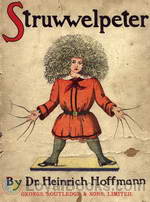 Struwwelpeter: Merry Tales and Funny Pictures
Struwwelpeter: Merry Tales and Funny Pictures
Struwwelpeter (Slovenly Peter) is an illustrated collection of humorous children’s poems describing ludicrous and usually violent punishments for naughty behavior. Hoffmann, a Frankfurt physician, wanted to buy a picture book for his son for Christmas in 1844. Not impressed by what the stores had to offer, he instead bought a notebook and wrote his own stories and pictures. While Struwwelpeter is somewhat notorious for its perceived brutal treatment of the erring children, it has been influential on many later children’s books, most notably Charlie and the Chocolate Factory. | |
By: Henry Fielding | |
|---|---|
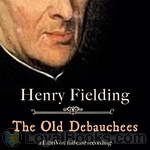 The Old Debauchees
The Old Debauchees
Young Laroon plans to marry Isabel, but Father Martin manipulates Isabel's father, Jourdain, in order to seduce Isabel. However, other characters, including both of the Laroons, try to manipulate Jourdain for their own ends; they accomplish it through disguising themselves as priests and using his guilt to convince him of what they say. As Father Martin pursues Isabel, she is clever enough to realize what is happening and plans her own trap. After catching him and exposing his lust, Father Martin is set to be punished. | |
By: Henry James (1843-1916) | |
|---|---|
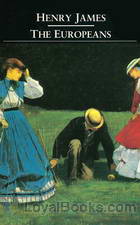 The Europeans
The Europeans
The Europeans: A sketch is a short novel by Henry James, published in 1878. It is essentially a comedy contrasting the behaviour and attitudes of two visitors from Europe with those of their relatives living in the ‘new’ world of New England. The novel first appeared as a serial in The Atlantic Monthly for July-October, 1878. James made numerous minor revisions for the first book publication. | |
By: Henry Spicer (1811-1891) | |
|---|---|
 Witch-Wife
Witch-Wife
Matthew Hopkins, a renowned witch-hunter, has his sights set on the quiet village near Pendell Manor. However Cecile Howard and her friends are determined to put an end to his superstitious nonsense, put an end to his reign of terror, and teach him a lesson he won't soon forget! - Summary by Kelly S. Taylor Cast list: The Witch Wife: A Tale of Malkin Tower by Henry Spicer BC/Editor for this play is Kelly S. Taylor Sir Gerald Mole: Mike Manolakes Marchmont Needham: Cavaet Antony Gabb: Parsa2020 Harry... | |
By: Herbert George Jenkins (1876-1923) | |
|---|---|
 The Return of Alfred
The Return of Alfred
The hero of the book is at a loose end, weary and bored of his old life after returning from the Great War. After an argument with his uncle and a railway strike he finds himself lost in the county of Norfolk at ten o’clock one night. When he seeks shelter in a country home, the butler immediately recognizes him as “Mr. Alfred”, the missing son of the house. From that point onwards, our hero, who gives his name as “James Smith”, finds himself in for an exciting time.Not only does he inherit the friends of “Mr... | |
By: Herbert Jenkins (1876-1923) | |
|---|---|
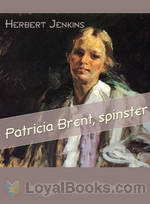 Patricia Brent, spinster
Patricia Brent, spinster
A romantic comedy, written in 1918, but with a modern feel to it. Patricia Brent one day overhears two fellow-boarders pitying her because she “never has a nice young man to take her out”. In a thoughtless moment of anger she announces that the following night she will be dining out with her fiance. When she arrives at the restaurant the next day, she finds some of the fellow-boarders there to watch her, so, rendered reckless by the thought of the humiliation of being found out, she goes up to a young man sitting alone at a table, and asks him to help her by “playing up”. Countless complications and adventures ensue… | |
By: Heywood Broun (1888-1939) | |
|---|---|
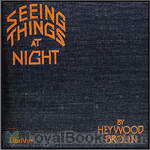 Seeing Things at Night
Seeing Things at Night
This Book is a collection of humorous short stories which describe the comedy in everyday things and situations. | |
By: Irvin S. Cobb (1876-1944) | |
|---|---|
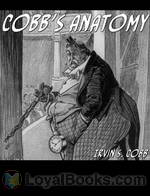 Cobb's Anatomy
Cobb's Anatomy
Irvin Shrewsbury Cobb was born on June 23, 1876. At seventeen years of age, he began writing for the Paducah Daily News, his hometown paper. At nineteen he became the managing editor; up to that point, our nation’s youngest. He worked as a columnist, a humorist and an author. But ‘horror,’ and ’short stories,’ are not why he is remembered. He is remembered because he was, and still is, funny. And although he is now dead–he died March 11, 1944–this work “Cobb’s Anatomy,” among others, has left an indelible mark upon mankind: a smile. | |
By: J. M. Barrie (1860-1937) | |
|---|---|
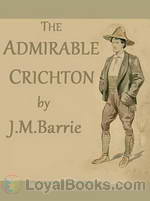 The Admirable Crichton
The Admirable Crichton
From the author of Peter Pan:Lord Loam, a British peer, considers class divisions to be artificial. He promotes his views during tea-parties where servants mingle with his aristocratic guests, to the embarrassment of all. Crichton, his butler, particularly disapproves of this.Loam, his family, a maid, and Crichton are shipwrecked on a deserted tropical island. The resourceful Crichton is the only one of the party with any practical knowledge. Eventually, social roles are reversed, and Crichton becomes the governor. | |
By: James Stephens | |
|---|---|
 There is a Tavern in the Town
There is a Tavern in the Town
The soul of Irish wit is captured in this unique tale of a barstool philosopher, the concluding story from 'Here Are Ladies' by James Stephens. (Introduction by iremonger) | |
By: Jane Austen (1775-1817) | |
|---|---|
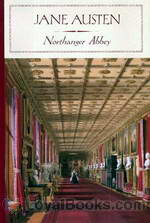 Northanger Abbey
Northanger Abbey
Jane Austen’s Northanger Abbey is a book about the life of Catherine Morland and her romantic relationships. The novel is divided into two parts; the first part begins with Catherine’s visit to Bath and her relationship with Henry Tilney and the other people she met there, and the second part starts with the arrival of Frederick Tilney and her visit to Northanger Abbey. This book alongside Pride and Prejudice and Sense and Sensibility is considered one of the major works of Jane Austen. The novel had undergone many revisions before its publication and it was even originally titled “Catherine... | |
By: Jerome K. Jerome (1859-1927) | |
|---|---|
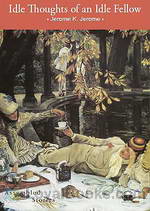 Idle Thoughts of an Idle Fellow
Idle Thoughts of an Idle Fellow
Idle Thoughts of an Idle Fellow, published in 1886, is a collection of humorous essays by Jerome K. Jerome. It was the author’s second published book and helped establish him as a leading English humorist. The book consists of 14 independent articles arranged by themes. | |
 Stage Land
Stage Land
A comic look at the curious habits and customs of the inhabitants of ‘Stage Land’. Dedicated to ‘that highly respectable but unnecessarily retiring individual, of whom we hear so much but see so little, “the earnest student of drama” | |
 Fanny and the Servant Problem
Fanny and the Servant Problem
"It is so sad when relations don't get on together." "Sadder still when they think they've got a right to trample on you, just because you happen to be an orphan and - I don't want to talk about my relations. I want to forget them. I stood them for nearly six months. I don't want to be reminded of them. I want to forget that they ever existed." She is not going to have her wish. Oh, no, not at all. A comedy. - Summary by ToddHW Cast list: Fanny: Devorah Allen Vernon Wetherell, Lord Bantock... | |
 Woodbarrow Farm
Woodbarrow Farm
Some confusion over a farm and an unexpected inheritance, with expectations of someone who is holding such a position. "You have rather a countrified walk, if you will forgive me for saying so — a more neglige style is adopted by the savoir vivre now, sir, and a more insouciant manner of carrying the umbrella. You walk too much in this way, sir." "Lord love us, do I walk like that?" "Just like that, sir. You see yourself, sir, what a very undestingue appearance it presents." - Summary by ToddHW Cast list: Piffin: ToddHW Allen Rollitt: Greg Giordano Luke Cranbourne: Beeswaxcandle Mike Stratton: redrun Mr... | |
By: Jesse Lynch Williams (1871-1929) | |
|---|---|
 Why Marry?
Why Marry?
Why Marry? is a comedy, which "tells the truth about marriage". We find a family in the throes of proving the morality of marriage to a New Age Woman. Can the family defend marriage to this self-supporting girl? Will she be convinced that marriage is the ultimate sacredness of a relationship or will she hold to her perception that marriage is the basis of separating two lovers."Why Marry?" won the first Pulitzer Prize for Drama. | |
By: John Dryden (1631-1700) | |
|---|---|
 Tempest
Tempest
John Dryden and William D'Avenant's Restoration adaptation of Shakespeare's The Tempest preserves the main plot and characters of the original. Prospero, the former Duke of Milan, lives on an isolated island with his daughter Miranda, and plans to take revenge on his brother Antonio, who usurped his throne. He is aided by his servant, the airy sprite Ariel, and is hated by his other servant, the monster Caliban. Dryden and D'Avenant added in a number of characters: Dorinda, Prospero's other daughter, Hippolito, a young man who has never seen a woman, Sycorax, Caliban's sister, and more spirits and comic mariners... | |
By: John Fletcher (1579-1625) | |
|---|---|
 The Woman's Prize, or The Tamer Tamed
The Woman's Prize, or The Tamer Tamed
John Fletcher's comedy (probably written and performed around 1611) is a sequel to Shakespeare's The Taming of the Shrew, in which, as the title suggests, the tamer will be tamed. Petruchio, the shrew-tamer, has been widowed, and marries a second wife, Maria, a "chaste witty lady." At the instigation of her cousin Bianca, and with the fellowship of her sister Livia, Maria decides to go on strike for equal rights, refusing to behave as a proper 17th century wife. Fletcher's play addresses the issue of men and women's roles within marriage, a controversial issue for his day. | |
 Sea Voyage
Sea Voyage
Albert, a handsome French pirate, and his crew get shipwrecked on a barren, rocky island after a severe storm. They encounter another pair of castaways who reveal a quite unusual secret- yet another strange group of people inhabit the island. Albert soon learns that these people are actually an Amazonian-like tribe of women, and proposes an alliance for the benefit of both parties. Love and hijinks ensue in a battle of the sexes.Notable for imitating many elements of William Shakespeare's The Tempest, the collaborators also consulted nonfictional traveler's accounts to bring their vision to life... | |
By: John Galsworthy (1867-1933) | |
|---|---|
 Skin Game
Skin Game
A small play in three acts. A kind of comic tragedy. The plot tells the story of the interaction between two very different families in rural England just after the end of the First World War. Squire Hillcrist lives in the manor house where his family has lived for generations. He has a daughter, Jill, who is in her late teens; and a wife, Amy, as well as servants and retainers. He is "old money", although his finances are at a bit of low ebb. The other family is the "nouveau riche" Hornblowers,... | |
By: John Kendrick Bangs (1862-1922) | |
|---|---|
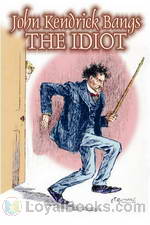 The Idiot
The Idiot
The Idiot is anything but, yet his fellow boarders at Mrs. Smithers-Pedagog’s home for single gentlemen see him as such. His brand of creative thought is dismissed as foolishness yet it continues to get under their skin, because when you’re beneath contempt you can say what you please. – This is the first of John Kendrick Bangs' “Idiot” books and was published by Harper and Brothers in 1895. | |
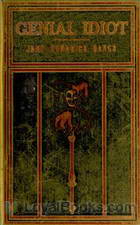 Genial Idiot
Genial Idiot
John Kendrick Bangs once again takes us on a journey with the loveable, but somewhat self-opinionated and irritating Mr Idiot. | |
By: John Vanbrugh (1664-1726) | |
|---|---|
 Provoked Wife: A Comedy
Provoked Wife: A Comedy
This Restoration Comedy follows Lady Brute as she decides whether or not to cuckold her coarse and unloving husband. Not as brash and farcical as Vanbrugh's earlier play "The Relapse," "The Provoked Wife" comments on society and matrimony in a surprisingly modern way. - Summary by WendyKatzHiller Cast of Characters: Constant: Adrian Stephens Heartfree: Gred Giordano Sir John Brute: Alan Mapstone Treble, a Singing-Master : ToddHW Rasor, Valet de Chambre to Sir John Brute: Larry Wilson Justice of the Peace: Wayne Cooke Lord Rake, Companion to Sir John: Algy Pug Col... | |
By: John Wight (1866-1944) | |
|---|---|
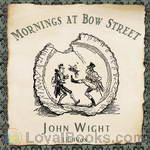 Mornings at Bow Street
Mornings at Bow Street
This is a collection of various articles found in Morning Herald columns. Some are found interesting, some may be hilarious! The 84 pieces of this book are actual reports throughout the 1870s newspaper written by the reporter, John Wight and Illustrated by George Cruikshank | |
By: Joseph Addison (1672-1719) | |
|---|---|
 Drummer, or, The Haunted House
Drummer, or, The Haunted House
Lady Truman received word fourteen months ago that her husband, Sir George Truman, has died in battle. Now a very eligible widow with a large estate, she has more suitors than she knows what to do with. As if that wasn't enough, her house is now being haunted at night by the horrible and ghostly sound of a drum, apparently caused by the restless spirit of her husband. When an old man arrives who claims to be able to lay the spirit to rest, she is so desperate for relief that she determines to give him a chance... | |
By: Josephine Van Tassel Bruorton | |
|---|---|
 Summer Boarders; or The Great Jewel Mystery
Summer Boarders; or The Great Jewel Mystery
A rich widow or two. An owner of 1000 acres of fine land. An heiress to the 1000 acres. Nefarious visitors of various sorts after the land, jewels, or whatever else they can get. Meddlers and neighbors. Faithful retainers and stalwart protectors. Comedy abounds. - Summary by ToddHW Cast list: Joshua Wicks, owner of "close onto 1,000 acres": Wayne Cooke Mr. Peter Schultz, sometimes vendor of sausages: Greg Giordano Mr. Barry Bland, an Englishman possessed of a shady reputation and a talkative... | |
By: Lechmere Worrall (1874-1957) | |
|---|---|
 Ann
Ann
Edward Hargraves, a young author, is encouraged by his mother and friend, Billy, to marry a woman in order to understand the fairer sex better and thereby characterize them better in his next book. While he attempts to follow their advice and marry Evangeline, a pleasant but rather uninteresting woman, a daring American reporter has set her eyes on him. She will stop at nothing to interview him and attract his attention. - Summary by Elsie Selwyn Cast List: Rev. Samuel Hargraves: ToddHWEdward Hargraves: Campbell SchelpWilliam “Billy” Lloyd: RHelfmannMrs. Hargraves: Anita Sloma-MartinezEvangeline Lipscomb: thestorygirlAnn Anning: EmmaHattonStage Directions: Elsie Selwyn Edited by: linny | |
By: Lillian Sutton Pelée (1872-1948) | |
|---|---|
 Wives on Strike
Wives on Strike
The "Wives' Welfare Club" is meeting together so they may air grievances about their husbands and the inequality that women experience. During this meeting the wives decide to "go on Strike" and nominate Jane Spink to be the test case. Betty, who is a newlywed of only 30 days, boasts of her husband's perfect qualities and is amused at the other wives' complaints. However, as she returns home she realizes she just might end up on strike as well! - Summary by Jenn BrodaCast List: Betty Albright,... | |
By: Lording Barry (1580-1629) | |
|---|---|
 Ram Alley, or Merry Tricks by Lording Barry
Ram Alley, or Merry Tricks by Lording Barry
Ram Alley, or Merry Tricks, is a bawdy comedy by Lording Barry, a contemporary of Shakespeare. The production bankrupted Barry, landed him in debtor's jail, and set him off on a life of piracy. The action of Ram Alley takes place in a disreputable London lane where lawyers, lords, and ladies rub shoulders with prostitutes and vagabonds. One 19th century editor complained that it was "full of gross passages, allusions, and innuendoes," but more recent commentators have seen past the risque gags and recognised the play's wit, complexity, and intelligence... | |
By: Madeleine Lucette Ryley (1858-1934) | |
|---|---|
 Mice and Men
Mice and Men
No, not the famous “Of Mice and Men” you’re thinking of. Instead, we have a sweet romantic comedy that tells the story of a bachelor, Mr. Embury, who decides to conduct an experiment to see if he can create the perfect wife for himself. To do so, he chooses an orphaned girl named Peggy to become his ward and ultimately his wife. Peggy, however, thinks that Mr. Embury has plans for her to become the wife of his nephew, Captain Lovell, whom she believes is in love with another woman . A critic who was not fond of sentimental stories called this play a fairy story with a sincere spirit and one they could actually believe in... | |
By: Mark Twain (1835-1910) | |
|---|---|
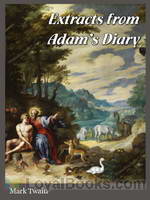 Extracts from Adam's Diary
Extracts from Adam's Diary
Get the true story of Adam and Eve, straight from the source. This humorous text is a day-to-day account of Adam’s life from happiness in the “GARDEN-OF-EDEN” to their fall from grace and the events thereafter. Learn how Eve caught the infant Cain, and Adam takes some time to learn exactly what it is. | |
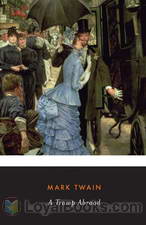 A Tramp Abroad
A Tramp Abroad
A Tramp Abroad is a work of non-fiction travel literature by American author Mark Twain, published in 1880. The book details a journey by the author, with his friend Harris (a character created for the book, and based on his closest friend, Joseph Twichell), through central and southern Europe. While the stated goal of the journey is to walk most of the way, the men find themselves using other forms of transport as they traverse the continent. The book is often thought to be an unofficial sequel to an earlier Twain travel book,The Innocents Abroad... | |
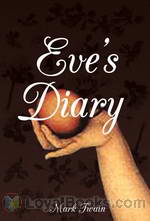 Eve's Diary
Eve's Diary
Eve's Diary is a comic short story by Mark Twain. It was first published in the 1905 Christmas issue of the magazine Harper's Bazaar, and in book format in June 1906 by Harper and Brothers publishing house. It is written in the style of a diary kept by the first woman in the Judeao-Christian creation myth, Eve, and is claimed to be "translated from the original MS." The "plot" of this novel is the first-person account of Eve from her creation up to her burial by, her mate, Adam, including meeting and getting to know Adam, and exploring the world around her, Eden... | |
 Mark Twain's (Burlesque) Autobiography and First Romance
Mark Twain's (Burlesque) Autobiography and First Romance
Mark Twain's (Burlesque) Autobiography and First Romance, a short volume, published by Sheldon & Co., NY in 1871, is Mark Twain's third book. It consists of two stories - First Romance, which had originally appeared in The Express in 1870, and A Burlesque Autobiography (bearing no relationship to Twain's actual life), which first appeared in Twain's Memoranda contributions to the Galaxy. Rather, the content consists of a few short stories of fictional characters who are supposedly part of Twain's lineage... | |
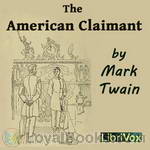 The American Claimant
The American Claimant
The American Claimant is an 1892 novel by American humorist and writer Mark Twain. The story focuses on the class differences and expectations of monarchic, hierarchical Britain and the upstart, "all men are created equal" America. Twain wrote the novel with the help of phonographic dictation, the first author (according to Twain himself) to do so. This was also (according to Twain) an attempt to write a book without mention of the weather, the first of its kind in fictitious literature. Indeed, all the weather is contained in an appendix, at the back of the book, which the reader is encouraged to turn to from time to time. | |
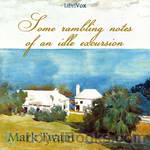 Some Rambling Notes of an Idle Excursion
Some Rambling Notes of an Idle Excursion
Written for the Atlantic magazine in 1877, this is a collection of stories about a trip Mark Twain made with some friends to Bermuda. It contains fascinating descriptions of Bermuda the island, and some of its people as well as an explanation of why Bermuda's houses are "so white". | |
By: Mary Keith Medbery Mackaye (1845-1924) | |
|---|---|
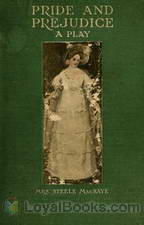 Pride and Prejudice: A Play
Pride and Prejudice: A Play
Pride and Prejudice, a comedy of manners and marriage, is the most famous of Jane Austen's novels. In this dramatic adaption by Mary Keith Medbery Macakaye some liberties are taken with the storyline and characters, but it is still a fun listen or read. Perhaps a good introduction for someone not ready to tackle the complete novel ~ and for the reader familiar with the work, a laugh can be had at the changes that were made in order to adapt it to the stage | |
By: Molière | |
|---|---|
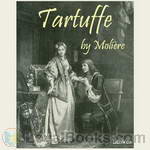 Tartuffe
Tartuffe
Jean-Baptiste Poquelin, known by his stage name Molière, was a French playwright and actor who is considered to be one of the greatest masters of comedy in Western literature. Among Molière's best-known works is Tartuffe or The Hypocrite, written in 1664. Though Tartuffe was received well by the public and even by Louis XIV, its popularity was lessened when the Archbishop of Paris issued an edict threatening excommunication for anyone who watched, performed in, or read the play.Tartuffe, a pious fraud who pretends to speak with divine authority, has insinuated himself into the household of Orgon... | |
By: Moliere (1622-1673) | |
|---|---|
 The Imaginary Invalid
The Imaginary Invalid
The Imaginary Invalid is a three-act comédie-ballet by the French playwright Molière. It was first performed in 1673 and was the last work he wrote. The plot centers around Argan, the 'imaginary invalid' who is completely dependent on his doctors and wants to marry his daughter to a doctor against her will, so that he will always have medical care freely available to him. In an ironic twist of fate, Molière collapsed during his fourth performance as Argan on 17 February and died soon after. | |
By: Molière (1622-1673) | |
|---|---|
 Amphitryon
Amphitryon
"The history of Amphitryon and Alcmene, or rather the myth of the birth of Hercules, is certainly very old, and is to be found in the literature of different nations." Under Moliere's touch, it becomes "One of the most charming and natural comedies composed in French verse.... Sprightliness and vivacity abound in this comedy...." - Summary by Translator Henri Van Laun Cast list: Mercury, in the form of Sosia: Nemo Night: Eva Davis Jupiter, in the form of Amphitryon: Larry Wilson Mercury, in the... | |
 Princess of Elis
Princess of Elis
In the month of May 1664, Louis XIV entertained the Queen-mother, Anne of Austria, and his own wife , Maria Theresa, with a brilliant and sumptuous fete at Versailles.... The second day was distinguished by the representation of The Pricess of Elis [by Moliere].... The Princess of Elis, a comedy-ballet, was intended to represent the struggle between the affections of the male and female sex, a struggle in which victory often remains with the one who seems the furthest from obtaining it.... The author's natural flow of wit and humor was checked by the necessity of accommodating himself to the conventionalities of courtly propriety... | |
 Two Pastorals: an Heroic and a Comic
Two Pastorals: an Heroic and a Comic
Moliere, on the way to the Ballet of the Muses, a court festival, started to write a new Heroic Pastoral. "He chose for his subject a similar one to the history of Florizel and Perdita in Shakespeare's Winter's Tale…. The charm of his writing, the exquisite delicacy of the sentiment, and the freshness of the pastoral scenes, cause us to regret that Moliere wrote only the first two acts of this play and never finished it." Though it was performed this way in Dec 1666 - so maybe there is enough here to enjoy... | |
By: Nathan Field (1587-1620) | |
|---|---|
 Amends for Ladies
Amends for Ladies
Amends for Ladies falls within the genre of Jacobean city comedy. Three women debate which has the better lot: a maid, a wife, or a widow. Lady Honour, the maid, is loved by her servant, Ingen, and disguises herself as a boy to become servant to him. Lady Perfect, the wife, is suspected by her husband, Love-all, of infidelity; Love-all tries to trap his wife by having his devious friend, Subtle, seduce her. A young citizen, Bold, disguises himself as an old woman to enter into the service of the widow, Lady Bright, in the hopes of gaining access to her bed... | |
By: Noël Coward (1899-1973) | |
|---|---|
 Young Idea
Young Idea
A Comedy in Three Acts The Young Idea is a play about two siblings, Gerda eighteen and Sholto twenty-one, who attempt to engineer the reconciliation of their divorced parents. It is full of laughs, love-triangles, and a lot of DRAMA! - Summary by Ambsweet13 Cast List: George Brent: dgulinoGerda : Amanda MehlSholto: BucksawJennifer: JennPrattCicely: Claire ButlerPriscilla Hartleberry: JennPrattClaud Eccles: skypigeonJulia Cragworthy: ambsweet13Eustace Dabbit: Matthew ReeceSibyl Blaith: Jody LebelRodney Masters: Mike ManolakesHuddle : Larry WilsonHiram J. Walkin: skypigeonMaria : April6090Stage Directions: ToddHW Edited by: ambsweet13 and David Olson Proof Listening by: superk and Yangxu | |
 Hay Fever
Hay Fever
In this delightful farce/comedy of manners, the eccentric and theatrical Bliss family invites four hapless guests to their English country house for the weekend. Hijinks ensue. - Summary by WendyKatzHillerCast List: Judith Bliss: WendyKatzHiller David Bliss: ToddHW Sorel Bliss: Jenn Broda Simon Bliss: Tchaikovsky Myra Arundel: Kelly S. Taylor Richard Greatham: Mike Manolakes Jackie Coryton: Jvisi Sandy Tyrell: CassiopeiaSparks Clara: C. Roxanne Maxwell Stage Directions: Jim Locke | |